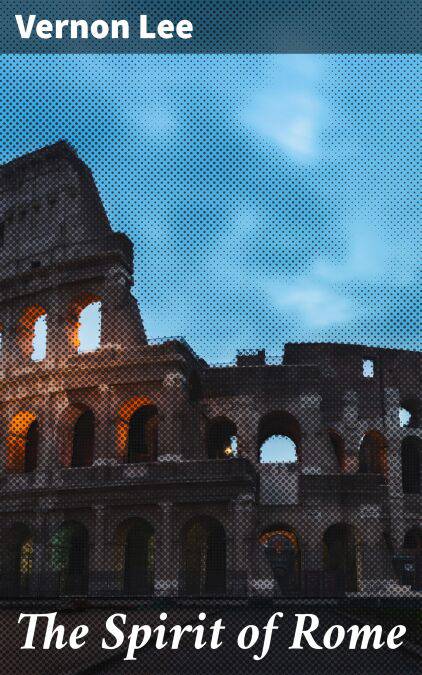
- Retrait gratuit dans votre magasin Club
- 7.000.000 titres dans notre catalogue
- Payer en toute sécurité
- Toujours un magasin près de chez vous
- Retrait gratuit dans votre magasin Club
- 7.000.0000 titres dans notre catalogue
- Payer en toute sécurité
- Toujours un magasin près de chez vous
The Spirit of Rome EBOOK
Exploring the Eternal City: Monuments, Art, and Culture in Ancient Rome
Vernon Lee
Ebook | Anglais
0,49 €
Format
Description
In "The Spirit of Rome," Vernon Lee deftly weaves an enchanting tapestry of history, art, and atmosphere that captures the essence of the Eternal City. Through a series of evocative essays, Lee transcends mere description, employing a lyrical prose style that resonates with the rhythms of Italian life and culture. Set against the backdrop of Italy's rich historical narrative, the book mingles personal reflections with profound philosophical insights, exploring the interplay between place and identity and the sensory experience of urban existence. Lee invites readers to experience Rome not just as a city but as a living spirit imbued with history, myth, and the sublime intricacies of beauty and decay. Vernon Lee, a pioneer of aestheticism and a significant figure in early 20th-century literature, was deeply influenced by her extensive travels and profound engagement with art and philosophy. Born Violet Paget in 1856, Lee's rich background in the humanities and her affinity for Italy fostered a unique perspective, enabling her to blend personal narrative with cultural critique. Her encounters with the artistic elite and her embrace of the Romantic tradition evidently shaped her portrayal of Rome, making it both a personal and universal exploration of beauty. I wholeheartedly recommend "The Spirit of Rome" to anyone fascinated by the intersection of art, life, and place. Lee'Äôs contemplative prose and acute observations will resonate with not only lovers of Italy but also those who seek a deeper understanding of how environments shape our experiences and perceptions. This book is essential reading for scholars of literature and art history alike, providing a timeless perspective on the enchanting power of Rome.
Spécifications
Parties prenantes
- Auteur(s) :
- Editeur:
Contenu
- Nombre de pages :
- 152
- Langue:
- Anglais
Caractéristiques
- EAN:
- 4057664582270
- Date de parution :
- 02-12-19
- Format:
- Ebook
- Protection digitale:
- Digital watermarking
- Format numérique:
- ePub

Les avis
Nous publions uniquement les avis qui respectent les conditions requises. Consultez nos conditions pour les avis.






